#innovative logistics technology
Text
FastX: Shaping Tomorrow's Effortless Logistics Landscape
In the rapidly changing world of logistics, the ability to redefine how goods seamlessly traverse from point A to point B is paramount. FastX is not just a service provider; it is a force reshaping the future of logistics. Examining the latest trends in the industry, it's evident that FastX isn't merely adapting to change; it is actively sculpting the narrative of hassle-free logistics.
Embracing Hyperautomation in Logistics

FastX stands as a leader in the evolution of logistics, embracing hyper-automation to streamline and enhance operational efficiency. In the upcoming years, the industry will witness an unparalleled integration of automation technologies, ranging from autonomous vehicles and drones for last-mile deliveries to robotic process automation for backend processes. FastX is not just keeping pace; it is spearheading the use of state-of-the-art automation to ensure precision and speed in every delivery.
Sustainable Logistics for a Greener Horizon

With environmental consciousness taking center stage, the logistics industry is undergoing a pivotal shift towards sustainability. FastX is aligning itself with this global movement, giving priority to eco-friendly practices in its operations. By focusing on electric and low-emission vehicles, optimizing delivery routes, and introducing innovative packaging solutions, FastX is leading the charge toward a more sustainable logistics future, setting new industry benchmarks.
Blockchain: Revolutionizing Trust in Logistics

Blockchain is not just a buzzword; it is a revolutionary force in logistics, and FastX is harnessing its power to redefine trust in the industry. Through the implementation of blockchain in its processes, FastX ensures secure and traceable transactions, creating an environment where trust is not an afterthought but an integral part of logistics operations.
Data-Driven Precision Logistics
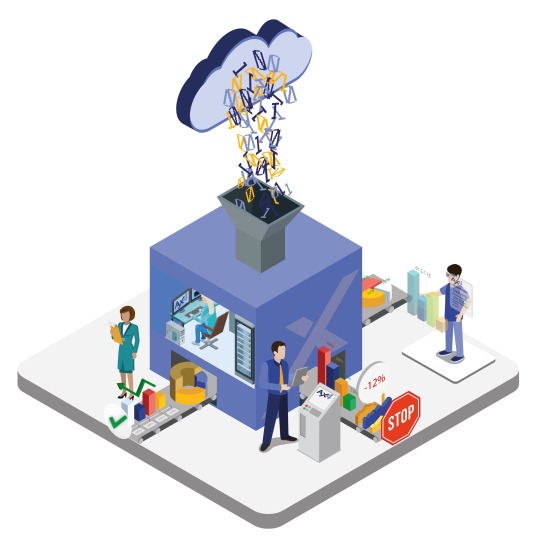
The key to future logistics success lies in data-driven decision-making. FastX recognizes this and employs big data analytics to optimize routes, predict demand patterns, and enhance overall logistics performance. By leveraging the power of data, FastX is not merely delivering packages but delivering insights, ushering in a new era of precision logistics that anticipates needs and consistently exceeds expectations.
FastX: Shaping a Customer-Centric Logistics Experience

As customer expectations continue to evolve, FastX stands out as a pioneer in shaping a customer-centric logistics experience. The future will witness an increased focus on real-time tracking, personalized delivery options, and proactive communication – areas where FastX is already leading. It's not just a service provider; it's a trailblazer in customer experiences, ensuring that each delivery is not just a transaction but a seamless and memorable interaction.
FastX and the Logistics Revolution

Looking ahead into the future of logistics, it's clear that FastX isn't merely adapting to change; it is driving the revolution. The industry is on the cusp of transformative shifts in hyper-automation, sustainability, blockchain trust, data-driven precision, and customer-centric experiences. FastX isn't just participating; it's at the forefront, setting new standards for innovative and customer-centric delivery solutions. The future belongs to FastX, and that future is already unfolding.
#FastX service innovations#logistics industry disruptor#FastX delivery advancements#innovative logistics technology#logistics solution#eco-friendly delivery solutions#sustainable logistics practices#green delivery initiatives#environmentally conscious logistics#eco-friendly transport options#load planning optimization
0 notes
Text
Cargo handling has always been a time-consuming and unavoidable work, the emergence of AGV unmanned trucks, instead of people to complete the different states of the handling operation, greatly reduced people's labor intensity and improved the efficiency of the factory. The factory transportation robot system is based on a HandsFree robot and open source system, realizing the robot from map building, navigation, and motion control; it can autonomously and accurately complete the delivery of production materials under the operation scenario of human-machine mixing and provide the flexible flow of materials between production lines.
#innovation#mobile robot#agv#ultrasound#navigation#positioning#machine dreams#logistics#intelligent#warehousing#robotics#ugv#autonomous robot#higher education#market research#artificial intelligence (ai)#science and technology
3 notes
·
View notes
Text
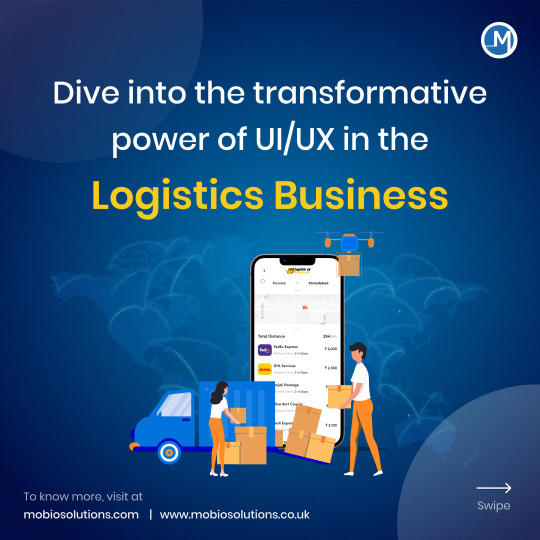

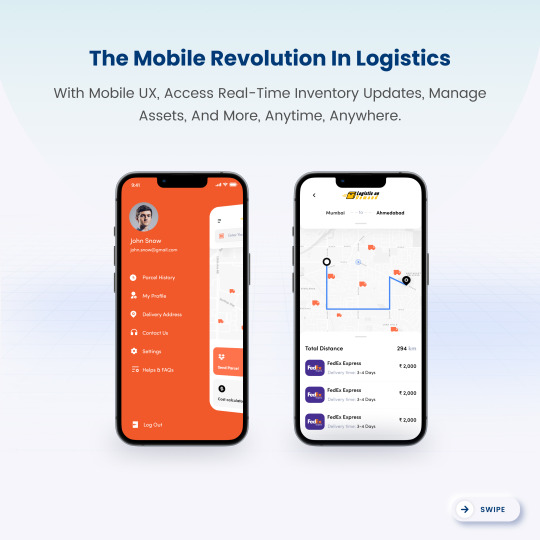
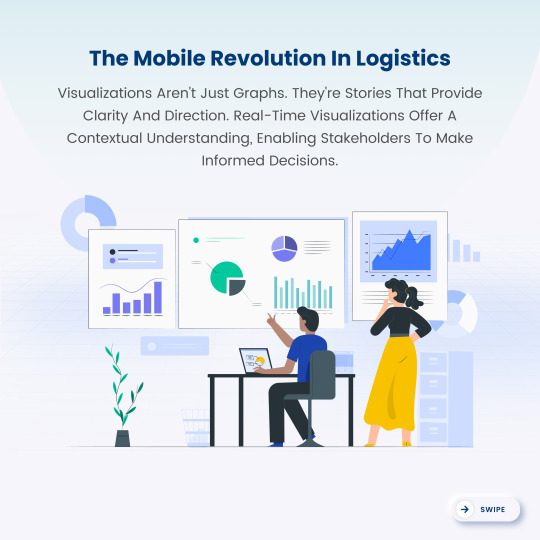
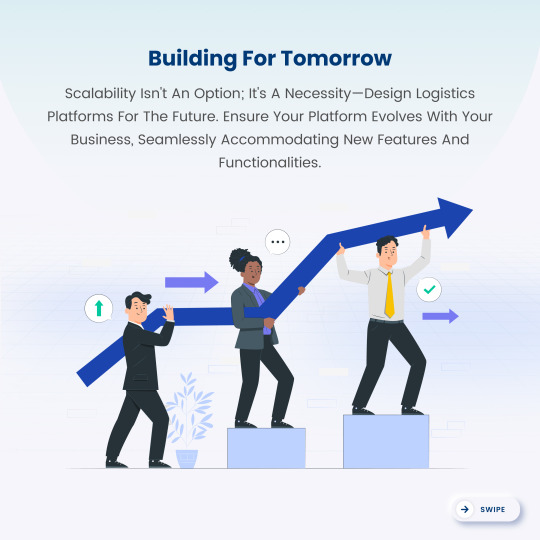
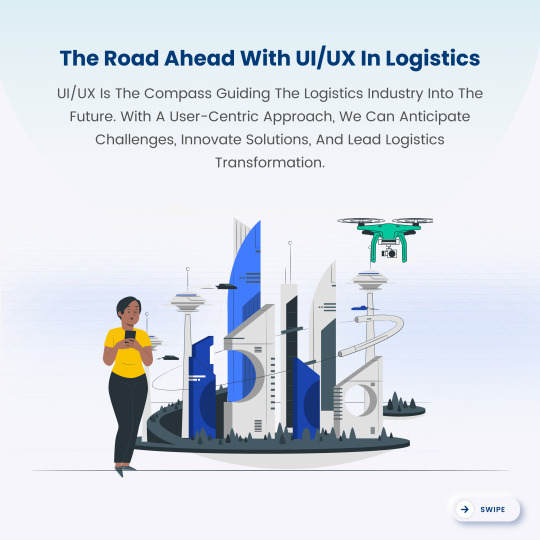
In today's fast-paced world, the logistics industry is more crucial than ever. But have you ever considered the role of UI/UX design in streamlining operations and enhancing customer experience?
A well-designed interface can simplify complex processes, making it easier for staff to manage inventory, track shipments, and interact with customers. 📦🛒
Imagine a dashboard with real-time updates, intuitive controls, and seamless navigation. That's the power of good UI/UX design—it transforms businesses' operations, leading to increased efficiency, reduced errors, and happier customers.
Stay caught up! Embrace the transformative power of UI/UX design in your logistics business and set yourself on a path to success.
#design#ui ux design#logistics#supply chain#user experience#user interface#technology#innovation#business#mobiosolutions#uk
2 notes
·
View notes
Text
IT Solutions for Logistics: The Path to Digital Excellence
The logistics industry has traditionally been synonymous with complex processes, paper trails, and intricate supply chain management. However, digitalization has catalysed a radical transformation toward efficiency, visibility, and customer-centricity. Digital transformation in logistics refers to integrating digital technologies across business operations, thereby changing how companies interact with customers and conduct their logistics operations.
This comprehensive guide will explore the critical aspects of digital transformation in logistics, explaining why it's imperative for the industry, its benefits, and how leading companies embrace it.
Need for Digital Transformation in Logistics
The logistics and transportation sectors are intricately connected with various economic sectors, contributing significantly to overall economic growth. The efficiency of logistics services plays a pivotal role at the national and global levels, emphasising the need for digital transformation.
Global spending on this transformation is expected to reach $84.6 billion by 2027. To put this into perspective, it's not just about keeping up with the latest trends; it's about survival in a rapidly changing business environment.
A recent survey conducted by Telstra Global & The Economist Intelligence Unit reveals that logistics and transport rank fifth out of eleven industries globally for digital transformation acceptance, with a score of 6.61. This demonstrates the industry's growing recognition of the need to adopt digitalization and navigate the challenges posed by a shifting landscape.
Historically, the logistics industry needed to adopt digital transformation. However, recent years have witnessed a paradigm shift, with new players closely collaborating with technology companies. This shift represents a market worth hundreds of billions of dollars, attracting numerous players eager to expand their market presence.
Furthermore, in today’s real-time economy, global businesses are hyper-connected and speed and timeliness have become paramount. Research suggests that 76.9% of executives acknowledge the impact of the real-time economy on their business processes. This heightened demand for rapid, reliable logistics services underscores the urgency of digital transformation and the challenges that must be navigated to ensure success in the evolving landscape.
Key Technologies Driving Digital Transformation
Digital transformation in logistics is powered by cutting-edge technologies such as Big Data, Artificial Intelligence, Machine Learning, Natural Language Processing, Blockchain, and Cloud Computing. These innovations are supplanting outdated systems like AS400 green screens, leading to increased supply chain productivity, cost reduction, and error mitigation across all logistics industry sectors.
Digital Transformation Benefits in Logistics
Digital transformation empowers logistics companies to weather modern challenges effectively. It offers:
IoT-Integrated Supply Chain: Leveraging the Internet of Things (IoT) for fleet management, demand assessment, and real-time inventory tracking.
Behavior Analytics & Customer-Centricity: Tracking user behavior across platforms to enhance the entire customer journey.
Business Process Transformation: Streamlining operations through Blockchain, IoT, AI, and Machine Learning, increasing flexibility and automation.
Digital Twin: Utilizing advanced analytics and AI for virtual representations of logistics operations, optimizing supply chains.
Blockchain: Integrating logistics providers, carriers, and shipping lines for streamlined processes.
AI & ML: Breaking down data silos in supply chains and increasing visibility.
Big Data and Analytics: Predicting demand changes and managing the workforce more effectively.
Evolution of Business Models
Digital transformation isn't a monolithic change; it encompasses various facets:
Business Process Transformation: Leveraging technologies to streamline tasks, enhance innovation, and automate processes.
Digital Twin: Using virtual representations to simulate complex supply chain operations.
Blockchain: Integrating diverse business streams into a single platform for enhanced logistics operations.
AI & ML: Addressing governance issues and data silos, improving visibility and integration.
Big Data and Analytics: Gaining insights into demand changes and workforce management.
Business Model Transformation: Rethinking value delivery and transitioning from physical to digital experiences.
Cross-Domain Transformation: Leveraging existing expertise to enter new business areas and industries.
Organizational Transformation: Fostering enterprise-wide changes, promoting agility, collaboration, and innovation.
Leaders in Digital Transformation
Prominent logistics service providers, including DHL Supply Chain, FedEx, UPS, and Samsara, are at the forefront of digital transformation. These industry leaders have harnessed technology to enhance real-time tracking, optimize routes, and increase productivity. Their adoption of analytics, AI, and automation has driven safety, compliance, and customer satisfaction to new heights.
Right Path to Digital Transformation
As digitalization transforms every sector, the logistics industry must remain proactive. Businesses that resist the application of digital technologies risk falling behind. Addressing the potential for further simplification and acknowledging the growing importance of technology in the sector is crucial. In a highly competitive landscape, where price and quality have plateaued, delivery speed reigns supreme.
Digital transformation in logistics is not just a trend; it's the future. It is the right path forward, enabling businesses to thrive in an era where digital technology is the key to success. IT solutions for logistics will play a pivotal role in shaping the industry's future. Discover more about IT solutions for logistics and embark on your digital transformation journey with Nous Infosystems.
0 notes
Text
🔒 Unlocking Innovation: The Power of 4G GPS E-Locks in Transportation Security 🔒
For over 5 years, I've been at the forefront of the transportation security industry, and I'm thrilled to share with you the game-changing technology of 4G GPS E-Locks.
In today's fast-paced world, ensuring the safety and security of cargo during transit is paramount. Traditional locks can only do so much, but 4G GPS E-Locks take security to a whole new level.
👇🏻👇🏻For more interesting Fact about 4G GPS E-Locks👇🏻👇🏻
https://youtu.be/IptizWVgvQs
Here's why they're causing such a buzz:
Real-time Tracking: With built-in GPS technology, these locks provide real-time tracking of cargo shipments. This means you can monitor your goods every step of the way, giving you peace of mind and enabling quick responses to any unexpected events.
Enhanced Security Features: The advanced encryption and authentication features of 4G GPS E-Locks ensure that your cargo remains safe and secure at all times. Whether it's dual opening options or OTP-based vehicle unlocking systems, these locks have got you covered.
Versatility: Whether you're transporting goods by truck, container, or railcar, 4G GPS E-Locks offer unparalleled versatility. They can be easily installed and integrated into your existing transportation systems, making them a perfect fit for any operation.
Improved Efficiency: By streamlining the tracking and monitoring process, these locks contribute to increased operational efficiency. With access to real-time data, logistics companies can optimize routes, reduce delays, and ultimately save time and money.
In conclusion, 4G GPS E-Locks are revolutionizing transportation security as we know it. If you're looking to take your cargo transportation to the next level, consider integrating these innovative locks into your operations. The future of secure transportation is here, and it's powered by 4G GPS E-Locks.
0 notes
Text
Strengthening Foundations:
Navigating Customer Demands and Expectations for Robust Trucking Relationships
Type your email…
Subscribe
The trucking industry stands as a pivotal pillar in the global supply chain, its wheels turning the gears of economy and commerce. Yet, amidst its crucial role, trucking companies face the perpetual challenge of balancing customer demands and expectations with operational efficiency and…

View On WordPress
#"AI trucking industry"#"blockchain in logistics"#"competitive pricing trucking"#"competitive trucking services"#"CRM systems trucking"#"customer relationships trucking"#"customer retention trucking"#"customer satisfaction trucking"#"customer service in trucking"#"data analytics in trucking"#"eco-friendly trucking"#"green trucking solutions"#"IoT devices trucking"#"loyalty programs trucking"#"personalized logistics solutions"#"predictive analytics trucking"#"real-time shipment tracking"#"secure trucking transactions"#"sustainable trucking practices"#"technology in trucking"#"trucking industry customer demands"#"trucking industry innovation"#"trucking industry trends"#"trucking service customization"#"value-added trucking services"#business#cash flow management#Freight#freight industry#Freight Revenue Consultants
0 notes
Text

#AI in logistics#warehouse quality control#Arvist.ai#automated inspection#predictive maintenance#inventory management#supply chain efficiency#machine learning#AI technology#safety compliance#regulatory compliance#logistics innovation#artificial intelligence#warehouse operations#quality assurance
0 notes
Text

Explore strategies for managing price volatility in the bamboo furniture supply chain, from mitigating cost fluctuations to leveraging technology and innovation. Discover how connecting with verified bamboo furniture exporters from India on Global Trade Plaza enhances supply chain stability and competitiveness.
#bamboofurniture#exporters#india#globaltradeplaza#supplychain#costmanagement#pricevolatility#innovation#technology#strategies#verifiedleads#sustainability#manufacturing#globalmarkets#businessgrowth#marketinsights#logistics#partnerships#ecommerce#furnitureindustry
0 notes
Text
Alibaba Group: Revolutionizing Global Trade and Commerce"
Alibaba Group Holding Limited, founded in 1999 by Jack Ma, is a multinational conglomerate based in China that specializes in e-commerce, retail, internet, and technology. With a mission to make it easy to do business anywhere, Alibaba has transformed the landscape of global trade and commerce. Here’s an overview of Alibaba’s key businesses and its impact on various sectors
1. E-Commerce…

View On WordPress
#Alibaba Group#Cloud Computing#Digital Entertainment#E-commerce#Financial Services#Global Expansion#Innovation#Logistics#Supply Chain#Technology
0 notes
Text
Gianluigi Aponte: When Technology and Sustainability Meets Shipping Logistics at MSC
What is the importance of shipping and logistics companies, you may ask? The need for shipping and logistics companies worldwide is for the easy and efficient transport and operation of goods in large containers traveling to and from locations of vast distances between them.

Many companies and businesses around the world require the movement or transport of goods, resources, and products to different locations quickly and safely. For example, imported or exported food products, equipment, livestock, vehicles, bulk cargo, etcetera. These goods are transported in various ways such as through air, land, and sea or the country’s transport infrastructure.
Along with good logistic operations and supply chain management, a shipping company with energy-efficient vessels can deliver satisfying, positive, expert, and professional services. With the use of technological advances in the world, the inclusion and transformation of digitalization in shipping, and the use of technology in logistics, the various strategies for achieving innovation in the maritime industry are met.
Therefore in this article, we will be exploring the journey of one such company that started as a one-ship transport operation to a globally leading organization that is recognized in more than 150+ countries. As the founder of this independent, family-owned, and not-for-profit organization business, and being the Group Chairman as well as having an experienced education and career as a Captain – Gianluigi Aponte, has successfully managed to make his mark in the transportation of goods, resources, and products for the maritime industry.
Captain Gianluigi Aponte – Founder, CEO and Group Chairman:
Captain Gianluigi Aponte is the founder of the world’s leading shipping and logistics business and company – The Mediterranean Shipping Company SA (MSC). Having an education in the Italian Maritime Academy, Gianluigi Aponte graduated to help his family business. He operated many passenger ferries in the Mediterranean as the Captain of his vessels.
“Ours is a business built on a genuine passion for the sea and unfaltering commitment to people and communities.” – Founder, Gianluigi Aponte.
Gianluigi Aponte left his family business for a while to work as a Banker, to take a break. After this, the Captain eventually came back to work in the maritime industry to embrace his roots. This was where his globally leading business started. In the year 1970, Gianluigi Aponte started with a one-ship maritime transport operation in Brussels, Belgium, which has since led the business to diversify and grow in their operations and services.
The Mediterranean Shipping Company SA (MSC):
MSC (Mediterranean Shipping Company SA) – founded in the year 1970, has its headquarters established in Geneva, Switzerland. The family-owned business currently has over 800 vessels, transporting and shipping containers through 300 routes and 520 ports. Operating for over 155 countries around the globe, in over 675 established offices, and employing a power-driven workforce of around 200+ thousand employees, MSC annually carries and transports around 22.5 million twenty-foot equivalent units (TEU). The business has also included air cargo transport operations using 5 aircrafts.
“Our staff are the lifeblood of the company, they have commitment, passion and loyalty…”
– Founder, Gianluigi Aponte.
Overseeing container shipping and logistics solutions, cruise lines, passenger ferry services, in-land and port terminal transportation and infrastructures, air cargo and digital business solutions, as well as cargo cover solutions, MSC has adopted the purpose of providing services that are based on sustainable shipping.
Purpose – ‘to connect the world, while fostering inclusive social prosperity and economic growth, whilst also respecting and nurturing the home we all share – our Blue Planet’.
Striving to continuously work towards a Net-Zero Transition, MSC has opted to build its foundations in carbon footprint reduction and therefore has a primary hand in promoting the enabling of decarbonizing logistics. With the focus on carbon neutrality, climatic and environmental concerns are taken into utmost importance and regard when overseeing their business operations.
MSC understands its clients and customers and adopts tech-savvy strategies to provide good logistics services that cover global Intermodal transportation as well as Warehousing and Storage facilities and services for countries with the use of eBL (electronic Bills of Lading), EDI (Electronic Data Interchange), APIs (Application Programming Interfaces), and SMART cargo containers that have features in monitoring, detecting, tracking, securing, and optimizing, proves to be very beneficial in today’s time.
Curated specifically to their needs and requirements so that the appropriate type of transport, shipping, and containers are used for clients and customers, various shipping solutions are implemented. The Dry Cargo shipping solution covers anything from paper, agriculture, metal, hazardous goods, and food products, as well as rare and precious cargo items. The Reefer Cargo shipping solution covers all of the frozen and refrigerated goods and products fresh and temperature-optimized.
The Out-of-Gauge Cargo shipping solution covers goods and products that do not fit into standard-sized shipping containers and opts for adopting special care and use of equipment in securing and transporting the same. Trade Services for transatlantic and transpacific routes are also considered for global shipping and transportation services. The Liquid Cargo shipping solution for bulk liquid transport uses special eco-friendly options of Flexitanks and Flexibags. The Cargo Cover Solutions are provided to clients as there are chances of accidents happening while transporting and shipping goods. For this, there are Extended Protection and Marine Cargo Insurances provided for In-land and Maritime.
To Conclude:
The Mediterranean Shipping Company SA (MSC), founded in the year 1970 by Captain and CEO – Gianluigi Aponte, in Geneva Switzerland, also offers digitalized business solutions to book, manage, track, and monitor the transporting goods and containers in real-time, which in turn gains the trust and loyalty of their customers. Striving towards sustainability and innovation, the MSC Foundation takes up projects such as Supporting Humanitarian Relief and providing logistics services and funding from 2011 to Mercy Ships.
Visit More : https://theeuropeentrepreneur.com/gianluigi-aponte-when-technology-and-sustainability-meets-shipping-logistics-at-msc/
0 notes
Text
Docks Market: Tracing the Evolution and Uncovering Emerging Opportunities
The global docks market size is expected to reach USD 2.3 billion by 2030, as per a new report by Grand View Research Inc. The market is expected to expand at a CAGR of 3.4% from 2022 to 2030. The rising structure demand as the governing bodies of various economies is conducting redevelopment of waterfronts to maximize their value for both business and community, which is expected to propel market growth. Additionally, the constantly rising global population is indirectly leading to the scarcity of space in the existing urban ports leading to market demand for increasing the space productivity within a port.
One of the Norway-based engineering firms has developed smart application software to reduce the risk of accidents using an IoT platform. The newly developed technology makes use of hi-tech sensors to real-time monitor the operating states of floating docks from virtually anywhere. This newly developed application software shows the water levels across different tanks and other operating parameters for the docks which will increase the market for docks.
The Governmental permits are needed on the size of the dock, type of dock, and the type of natural resources that might get affected such as mangroves, corals, hard bottoms, and seagrass. The prohibitions are enforced on the harmful chemicals used for docks which may disturb the marine ecosystem. Lastly, some other restrictions might be added to control the type of dock being placed on the property.
The installation of docks is offered directly by the company-appointed contractors or distributors. However, the companies also offer a product suitable for DIY installations. In addition, the manufacturers also offer repair and maintenance services for the docks. The conventional port world is constantly changing, the technological, demographical, and sustainability drivers are affecting the daily business and are shaping several important trends which is also expected to drive the demand for docks market during the forecast period.
The global temperature rise is expected to make the transpolar passage and the Northern Sea Route could become potential alternatives for maritime freight. The use of the Northern Sea Route for maritime freight between Asia and Northern Europe is expected to reduce the voyage distance when compared with the Suez Canal route.
For More Details or Sample Copy please visit link @: Docks Market Report
Docks Market Report Highlights
The metal frame segment accounted for a market share of 52.0% in 2021, owing to the increasing demand for aluminum frame docks. Docks with aluminum frame are highly preferred by lakefront home or business owner as it offers strength as well as improve the aesthetic profile of the property where the dock is installed
The commercial application segment dominated the market in 2021 and is estimated to generate revenue of USD 1.1 billion by 2030, owing to the endless commercial applications for floating docks, however, they are commonly used at settings such as waterfront resorts and marinas
The market in North America is anticipated to witness a CAGR of 2.8% from 2022 to 2030 on account of increased users indulging in outdoor recreational activities that incorporate social distancing due to the pandemic. This will enhance the docks market within the region
The U.S. market is projected to witness strong growth over the forecast period and reach a market value of USD 0.68 billion in 2030 on account of the rise in the use of shipping for the movement of products and goods across regions. Additionally, space productivity is expected to lead to waterfront redevelopment activities thus positively influencing the docks market
The docks market is competitive in nature owing to the presence of several players that are primarily consolidated in the Asia Pacific and North America, whereas Europe exhibits a limited presence of established players. The changing lifestyle needs of the population, especially the younger section, towards activities such as adventure sports has also led to the rise in the use of boats and ships. This has also led to an increase in the use of floating docks across the globe
#Global Docks Market#Maritime Infrastructure#Port Development#Logistics Hub#International Trade#Shipping Industry#Dock Technology#Port Management#Water front Development#Maritime Connectivity#Harbor Innovation#Seaport Logistics#Dock Infrastructure#Naval Architecture#Coastal Development#Shipping Networks#Port Economics#Global Trade Routes
0 notes
Text
Sustainable Shipping-Fastx's Eco-Friendly On-Demand Logistics
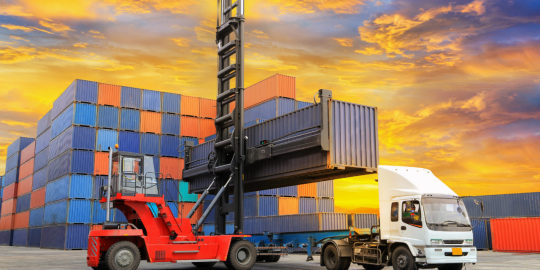
Fastx, a trailblazer in the on-demand logistics sector, is not just delivering packages; it's ushering in a new era of sustainable shipping. This article delves into how Fastx is making a significant impact through eco-friendly logistics practices and a steadfast commitment to sustainable shipping solutions.
Sustainable Shipping Initiatives: Fastx recognizes the environmental challenges posed by traditional shipping methods and has taken proactive measures to mitigate its carbon footprint. At the heart of its commitment is the adoption of sustainable shipping initiatives. The company employs electric vehicles for deliveries, reducing emissions and promoting cleaner transport options. Moreover, Fastx invests in sustainable packaging materials to minimize the environmental impact of its operations.
Eco-Friendly Logistics Practices: Beyond the use of green vehicles and packaging, Fastx integrates a range of eco-friendly logistics practices into its operations. This includes optimizing delivery routes for fuel efficiency, employing load planning technology to maximize cargo capacity, and implementing strategic load management to reduce unnecessary trips. Fastx is committed to creating a logistics ecosystem that not only meets the demands of on-demand services but also aligns with environmental sustainability goals.
Fastx's Commitment to Sustainability: What sets Fastx apart is its unwavering commitment to sustainability. The company recognizes the urgency of adopting eco-friendly practices in the logistics industry and has made it a core part of its mission. This commitment is not just a response to current trends but a long-term strategy to contribute positively to the environment. Fastx envisions a logistics future where the convenience of on-demand services coexists harmoniously with eco-conscious choices.
Sustainable Shipping: Fastx's Eco-Friendly On-Demand Logistics sheds light on Fastx's proactive approach to sustainability in the logistics sector. By embracing eco-friendly logistics practices, adopting sustainable shipping initiatives, and reaffirming its commitment to environmental responsibility, Fastx is not only meeting the demands of modern consumers but also setting a standard for the industry. Choosing Fastx means more than just a timely delivery; it signifies a conscious choice for sustainable and eco-friendly on-demand logistics.
#FastX driver benefits#transport technology#logistics#transportservice#transport#transportation#FastX service innovations
1 note
·
View note
Text
Cutebot takes a mobile cart + robotic arm as the carrier, based on a four-wheel differential motion mechanism, integrating embedded technology, intelligent perception technology, robotics technology, robotic arm technology, SLAM technology, artificial intelligence technology, and machine vision technology, which can cultivate composite talents from the whole process of "structural cognition - electronic control design - programming control - application development".
#innovation#mobile robot#agv#ultrasound#navigation#positioning#machine dreams#logistics#intelligent#warehousing#robotics#ugv#autonomous robot#higher education#market research#artificial intelligence (ai)#science and technology
1 note
·
View note
Text
Smart Shipping Containers Market Will Touch USD 15,341.5 Million by 2030
The smart shipping container market was USD 3,971.2 million in 2022, and it will touch USD 15,341.5 million, propelling at a 18.4% compound annual growth rate, by 2030.
The growth of the industry is mainly attributed to the temperature regulation, enhance security measures, and real-time GPS tracking capabilities these containers offer. Moreover, because of the quick technological advancements in AI, IoT, big data analysis, and communication, the industry will further advance in the years to come.
Based on offering, the hardware category accounted for the largest smart shipping container market share, approximately 50%, and it will advance at the highest growth rate in coming years, because of the widespread adoption of various components for tracking and monitoring applications.

Based on technology, the industry is dominated by GPS due to its role in package monitoring and tracking.
Moreover, the quick implementation of the Bluetooth Low Energy (BLE) technology is because of the rising IoT devices implementation, which necessitates effective communication.
Additionally, the long-range wide area network (LoRa WAN) category will advance at the highest rate in the years to come. This is mainly because of the benefit of LoRa WAN as compared to other technologies, for instance, BLE and Wi-Fi.
Based on vertical, the food & beverage category will advance at the highest compound annual growth rate, of over 20%. This is attributed to the growing requirement for packaged food and perishable. Individuals are shifting their focus towards ready-to-eat food from homemade food, which is boosting the requirement for smart marine transportation solutions for edibles.
In 2022, the smart shipping containers industry is led by Europe, with a share of approximately 40%. This is because of the existence of numerous major industry players providing enhanced software and IoT sensors integrated hardware for effective analytics of data.
#Smart Shipping Container#Maritime Logistics#IoT Integration#Telematics#Supply Chain Efficiency#Global Market#Container Tracking#Remote Monitoring#Data Analytics#Industry 4.0#Innovation#Sustainable Shipping#Fleet Management#Real-time Visibility#Asset Security#Connectivity Solutions#Market Trends#Containerization#Emerging Technologies#Logistics Optimization
0 notes
Text
Steering Success: The Reskilling Route for Independent Trucking Business Owners
This post is a continuation of a couple of previous posts here and here on outsourcing. We do not want anyone to think that outsourcing will cause people to lose their jobs. It can, but it doesn’t have to do so. Employees are the hidden goldmine of employers, and all efforts should be made to keep staff happy and productive in your business.
In the fast-evolving landscape of the trucking…

View On WordPress
#business#business strategy#career transition#competitive edge#continuous learning#cost reduction#employee development#employee loyalty#employee morale#fleet management technology#Freight#freight industry#Freight Revenue Consultants#green trucking initiatives#innovation in trucking#job opportunities#job security#logistics#logistics management#online learning platforms#operational efficiency#outsourcing#professional growth#reskilling#skill gap analysis#Technological Advancements#technology#Transportation#Trucking#trucking industry
0 notes
Text
#Sustainability#Supply Chain Management#logistics management and supply chain management#logistics management and supply chain#supply chain processes#supply chain and operations management#supply chain and logistics#Supply Chain And Operations Management#Trends In Supply Chain Management#Logistics Management System#Supply Chain Analysis#Supply Chain Challenges#Supply Chain Innovation#Supply Chain Management Services#Technology In Supply Chain Management#Supply Chain Trend#Supply Chain Management Solutions#Current Supply Chain Management Trend
0 notes